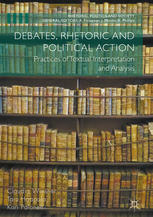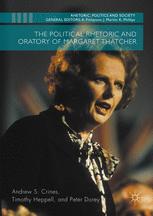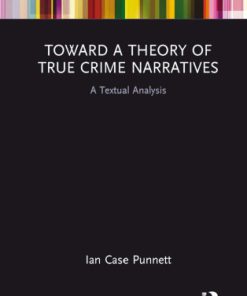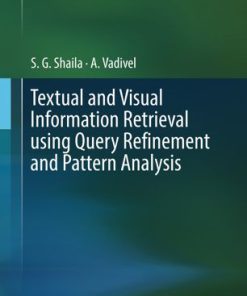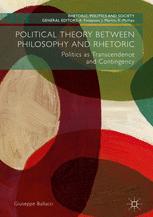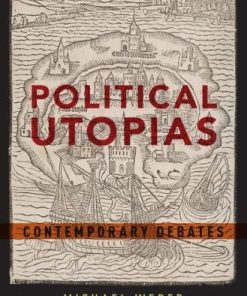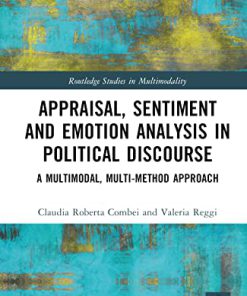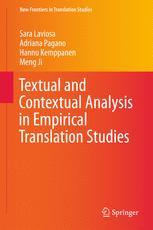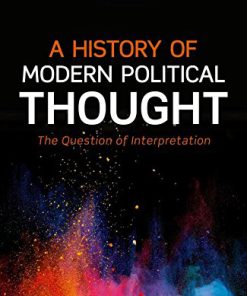Debates Rhetoric and Political Action 1st edition by Claudia Wiesner,Taru Haapala,Kari Palonen 9781137570567 1137570563
$50.00 Original price was: $50.00.$25.00Current price is: $25.00.
Debates Rhetoric and Political Action 1st edition by Claudia Wiesner,Taru Haapala,Kari Palonen – Ebook PDF Instant Download/Delivery:9781137570567 ,1137570563
Full download Debates Rhetoric and Political Action 1st edition after payment
Product details:
ISBN 10:1137570563
ISBN 13:9781137570567
Author:Claudia Wiesner,Taru Haapala,Kari Palonen
This book explicates how debates and documents can be understood, interpreted and analysed as political action. It offers the reader both a theoretical introduction and practical guidance. The authors deploy the perspective that debates are to be understood as political activity, and documents can be regarded as frozen debates. The first chapter discusses what is to be understood as politics and political. The second chapter explains the concept of debate as an exchange of arguments in speaking pro and contra. The third chapter presents concrete approaches, research practices and experiences that help analysing debates and documents as politics. The fourth chapter consists of a number of case studies that demonstrate how researchers can proceed in analysing parliamentary debates, documents, laws, and media articles. This book will be of use to all students and scholars interested in analysing texts and documents, as well as in political rhetoric and parliamentary debates.
Debates Rhetoric and Political Action 1st Table of contents:
Chapter 1: Understanding Debate as Politics
1.1 The Conceptual Aspect of Politics
1.2 Politics as an Activity
1.3 Four Aspects of Politics: Politicisation—Polity; Politicking—Policy
1.4 Types of Politics—Types of Debate
1.4.1 Debate, Discourse, Dispute, Discussion and Dissensus
1.4.2 Debate as pro et contra and as a Peaceful Form of Struggle
1.4.3 ‘Live’ and ‘Virtual’ Debates
1.4.4 Documents as Contributions to Debates
1.4.5 Political and Academic Debates: Similarities and Differences
1.5 The Presence of Politics in Texts and Debates
Chapter 2: Reading Debates Politically
2.1 Political Literacy
2.2 Parliamentary Debate as an Ideal Type
2.2.1 On the History of Parliamentary Debates
2.2.2 Extensions of Parliamentary Debates
2.2.3 Limits of Debate
2.2.4 Restrictions of Debate Inside Parliaments
2.3 Forms, Dimensions and Characteristics of Debates
2.3.1 Rules and Procedures of Debate
2.3.2 Debates on the Agenda and Debates of the Agenda
2.3.3 The Actors in Debate
2.3.4 Regulators of Debate
2.3.5 Multistage and Multilayer Debates
2.3.6 The Scarcity of Time for Debate
2.3.7 Terminating Debates
Chapter 3: Research Practices and Operations in Studying Debates and Documents
3.1 The Researcher’s Perspective on the Sources
3.1.1 Keeping Your Distance While Being Part of the Debate
3.1.2 On the Veto Power of the Sources
3.2 Approaches to Linguistic Political Action: Discourse Analysis, Rhetorical Analysis and Concept
3.2.1 Discourse Analysis
3.2.2 Rhetorical Analysis
The Rhetorical Tools: Topoi, Tropes and Figures as Arguments
3.2.3 Concepts as Nodal Points of Debates
3.3 Analysing Debates and Documents: The Essential Steps
3.3.1 Finding a Research Topic and Fixing the Research Question
3.3.2 From Research Topic to Research Question in the Exemplar Study
3.3.3 Determining the Research Material
3.3.4 Material Selection in the Exemplar Study
3.3.5 Analysing the Material
3.3.6 Ordering, Coding and Extracting
3.4 Categories for Analysing Debates and Documents: Explaining the ‘How’ and the ‘Why’
3.4.1 Numbers and Quantities
3.4.2 Finding Out the ‘How’ and ‘Why’ in the Exemplar Study
3.4.3 Further Useful Dimensions for Analysing Debates
3.5 Building Typologies, Drawing Conclusions and Answering Questions
3.5.1 Key Themes, Topics and Rules of the Discourses in the Exemplar Study
3.5.2 The Discourses in a Comparative Perspective
3.5.3 Computer-Supported Analysis
Chapter 4: Examples of Analysing Debates as Politics
4.1 Three Interpretations of a Parliamentary Debate: The Case of Constitutional Renewal in West
4.1.1 Procedure, Concepts and Time as Topics of the Debate—Kari Palonen
The Reform Agenda
Gordon Brown’s Politics of Limited Times
New Items on the Agenda from the Backbenchers
4.1.2 Analysis of a House of Commons Debate—Claudia Wiesner
Course, Actors and Rules of the Debate
Concepts, Themes and Arguments in the Debate
Further Perspectives
4.1.3 A House of Commons Debate Analysis—Taru Haapala
Rhetorical Genres and Commonplace Expressions
Politics of Agenda-Setting in the Debate
Parliamentary versus Popular Sovereignty
In Conclusion
4.2 Conceptual Controversies in Parliament—‘Politics’ in the House of Commons
4.2.1 The Four Aspects of Politics in Parliamentary Debate
4.2.2 ‘Political’ in British Constitutional Debates from the Late 1940s
4.2.3 ‘Politicking’ in the Westminster Debates
4.2.4 ‘Politics’ in British Parliament
4.3 Reading and Analysing Political Debate in Debating Societies
4.4 Parliamentary Rules of Procedure: The Case of the European Parliament
4.4.1 Rules of Parliamentary Procedure as Documents in Debates
4.4.2 Conceptions of Parliament
4.4.3 A First Look at the EP as a Parliament
4.4.4 EP’s Procedural History
4.4.5 French and British Procedural Styles
4.4.6 EP’s Francophone Committees
4.4.7 Free Mandate versus Party Groups
4.4.8 The Intervention of the Commission and the Councils
4.4.9 The Parliamentary Regulation of Debate
4.4.10 The EP President as a Negotiator
4.4.11 The Politics of Time in the EP
4.4.12 The MEP as a Politician
4.4.13 Conclusions
4.5 Doing Politics via Policy Documents and Laws: The Case of EU Citizenship Rights
4.5.1 The Conceptual Context: Citizenship in Western Nation-States and the EU
4.5.2 The Institutional Context
4.5.3 Citizenship Rights in the Treaty of Rome
4.5.4 Creating and Interpreting Union Citizenship
4.5.5 Implementing Union Citizenship: The Example of the Right to Free Movement
4.5.6 Shaping the Principle of Antidiscrimination
4.5.7 In Conclusion
4.6 What Is Said and What Is Not in Press Debates: The Silencing Strategy in Germany
4.6.1 Case 1: Marginalising EU Critics in the Mainstream Parties
4.6.2 Case 2: The PDS
4.6.3 Case 3: Peter Gauweiler
4.6.4 In Conclusion
4.7 The Politics of a Subtext: Football as a Polity
4.7.1 Text and Subtext
4.7.2 The Political Subtext of Football
4.7.3 The Politics of Football Tactics
Notes
Concluding Notes: Reappraising Politics and Debate
References
Archival Sources
Databases, Websites and Treaties
Literature
People also search for Debates Rhetoric and Political Action 1st:
why is rhetoric important in politics
types of political rhetoric
debate and rhetoric
debate strategies and rhetorical devices
examples of political rhetoric
Tags:
Claudia Wiesner,Taru Haapala,Kari Palonen,Rhetoric,Political,Debates
You may also like…
Politics & Philosophy
Reference - Writing
Toward a Theory of True Crime Narratives A Textual Analysis Punnett
Uncategorized
Textual and Visual Information Retrieval using Query Refinement and Pattern Analysis S.G. Shaila
Politics & Philosophy
Politics & Philosophy
Political utopias : contemporary debates 1st Edition Vallier
Cookbooks
Linguistics - Linguistics
Politics & Philosophy
A history of modern political thought : the question of interpretation 1st Edition Browning


